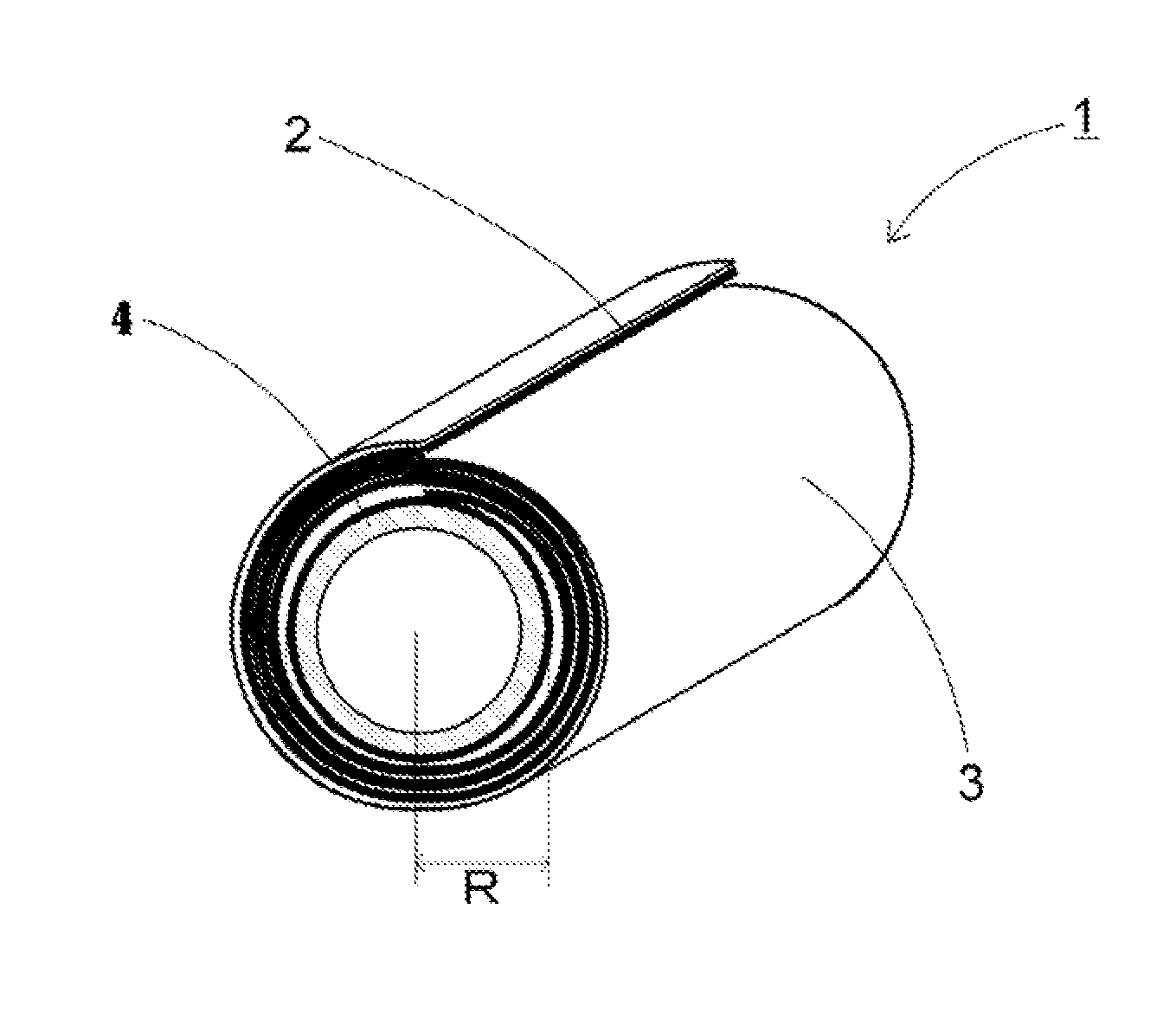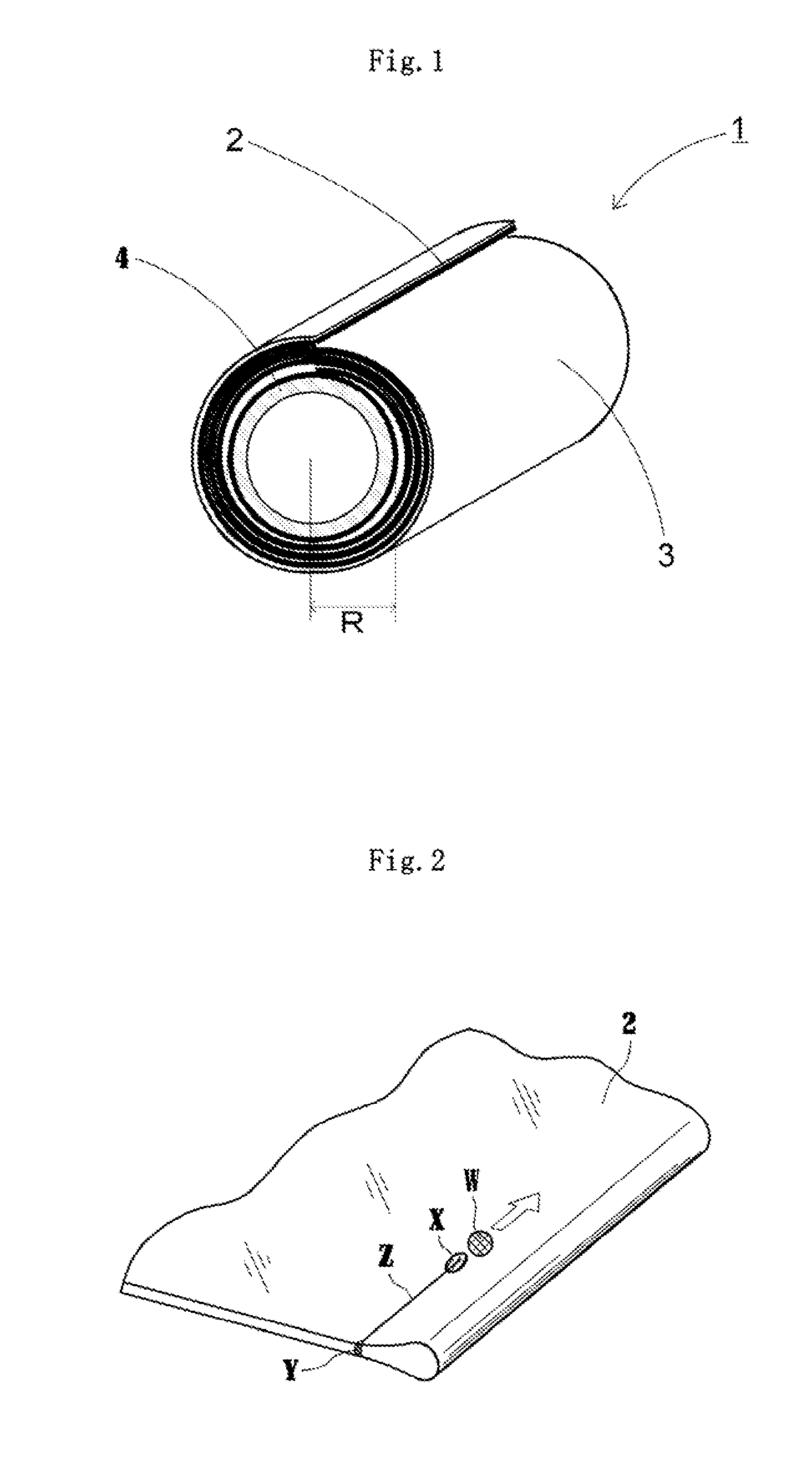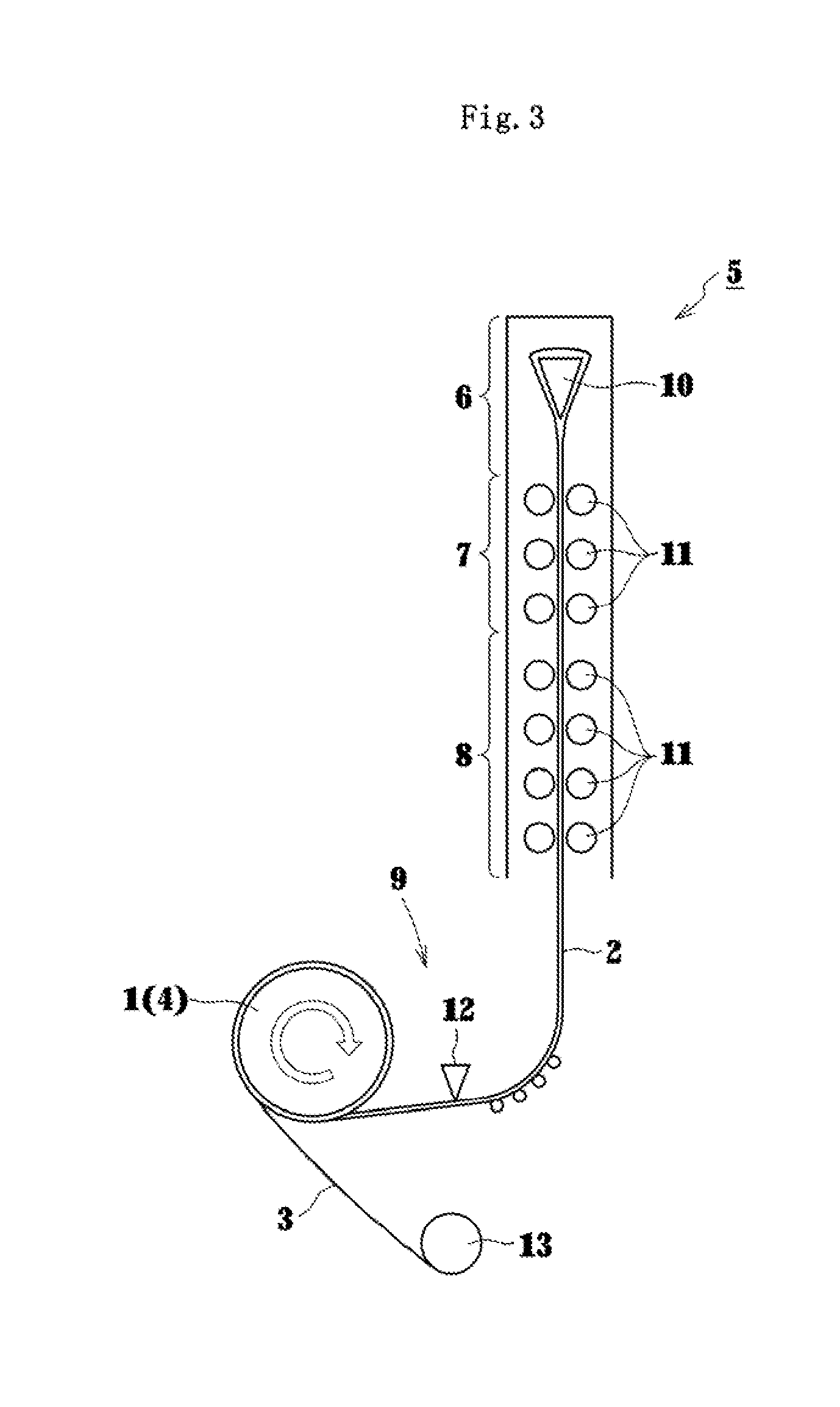Glass roll and process for producing glass roll
a glass roll and glass film technology, applied in the field of glass roll and process for producing glass roll, can solve the problems of deterioration of light-emitting body to be used, resin film inferior to glass plate in gas barrier property, oled display thinning is inevitable, etc., and achieves the effect of reliably manufacturing and providing glass film, and suppressing such a situation
- Summary
- Abstract
- Description
- Claims
- Application Information
AI Technical Summary
Benefits of technology
Problems solved by technology
Method used
Image
Examples
example 1
1. Example 1
[0066](1) Test piece for measurement of static fatigue strength Size: thickness 0.7 mm×length 10 mm×width 140 mm Grit size of abrasive paper for end surface: #150[0067](2) Test piece for measurement of 3-point flexural strength Size: thickness 0.7 mm×length 15 mm×width 85 mm Grit size of abrasive paper for end surface: #150
example 2
2. Example 2
[0068](1) Test piece for measurement of static fatigue strength Size: thickness 0.7 mm×length 10 mm×width 140 mm Grit size of abrasive paper for end surface: #320[0069](2) Test piece for measurement of 3-point flexural strength Size: thickness 0.7 mm×length 15 mm×width 85 mm Grit size of abrasive paper for end surface: #320
example 3
3. Example 3
[0070](1) Test piece for measurement of static fatigue strength Size: thickness 0.7 mm×length 10 mm×width 140 mm Grit size of abrasive paper for end surface: #600[0071](2) Test piece for measurement of 3-point flexural strength Size: thickness 0.7 mm×length 15 mm×width 85 mm Grit size of abrasive paper for end surface: #600
PUM
| Property | Measurement | Unit |
|---|---|---|
| Thickness | aaaaa | aaaaa |
| Thickness | aaaaa | aaaaa |
| Thickness | aaaaa | aaaaa |
Abstract
Description
Claims
Application Information
 Login to View More
Login to View More - R&D
- Intellectual Property
- Life Sciences
- Materials
- Tech Scout
- Unparalleled Data Quality
- Higher Quality Content
- 60% Fewer Hallucinations
Browse by: Latest US Patents, China's latest patents, Technical Efficacy Thesaurus, Application Domain, Technology Topic, Popular Technical Reports.
© 2025 PatSnap. All rights reserved.Legal|Privacy policy|Modern Slavery Act Transparency Statement|Sitemap|About US| Contact US: help@patsnap.com



